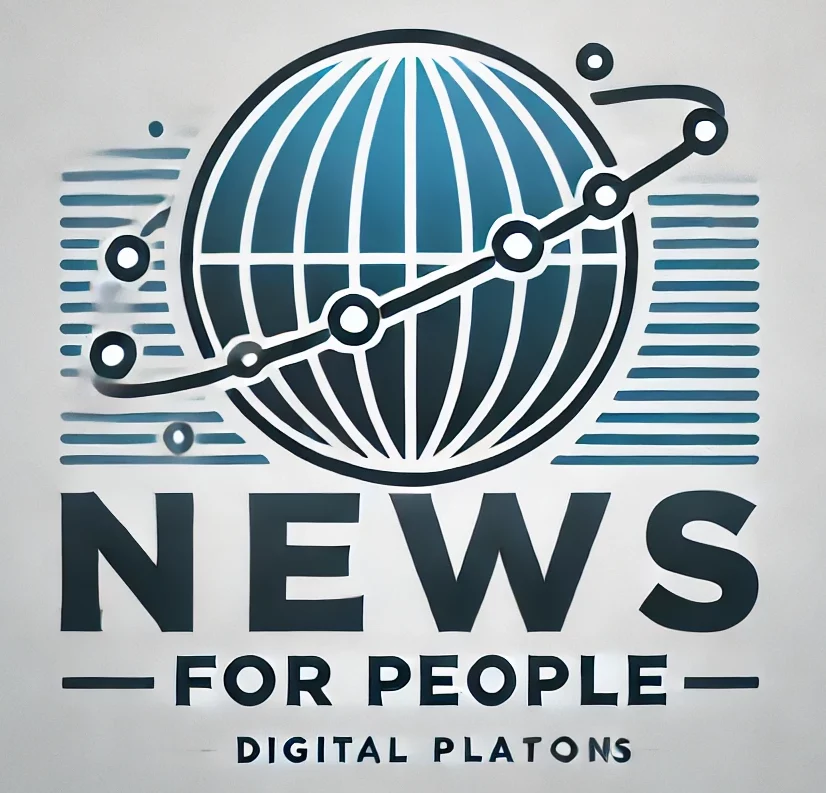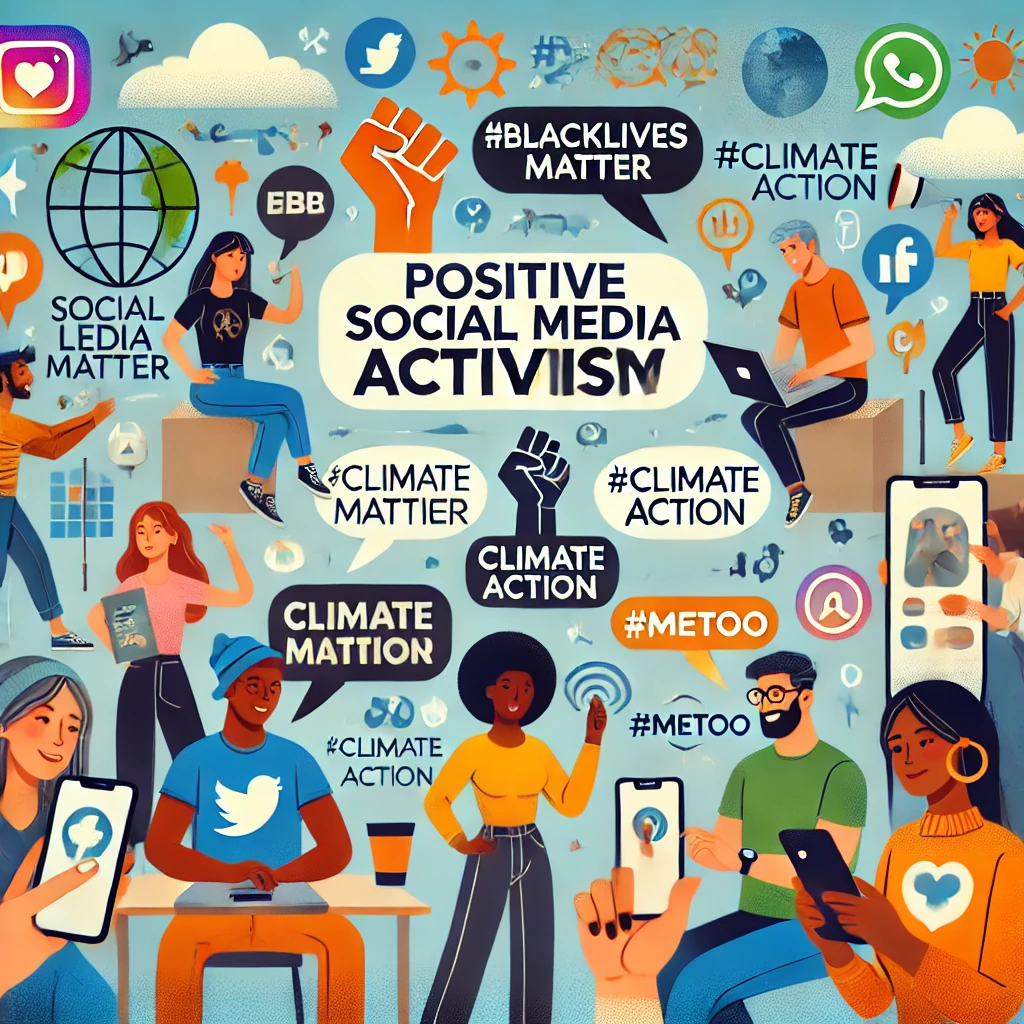Social media has become a cornerstone of contemporary life, altering the way we communicate, interact, and connect with others. Despite its frequent criticism for spreading negativity, misinformation, and division, social media holds significant potential for fostering positive connections, raising awareness, and driving activism. From social justice movements to climate change campaigns, these platforms have demonstrated their capacity to organize, mobilize, and amplify voices advocating for social good.
In this article, we will delve into how social media is being used to create positive connections and further activism. We will showcase its societal impact and provide examples of successful initiatives that have led to real social change. Additionally, we will discuss the benefits, challenges, and ethical considerations of employing social media as a tool for activism.
The Power of Social Media for Positive Connection
Building Communities and Fostering Support
One of the key ways social media fosters positive connections is by enabling people to find and join communities that share their interests, values, and experiences. These communities often offer a sense of belonging, particularly for those who may feel isolated in their offline lives. Whether it’s mental health support groups, online book clubs, or communities centered around specific hobbies or causes, social media connects individuals with similar interests, allowing them to share information and resources.
For example:
- Mental Health Communities: Platforms like Instagram, Twitter, and Facebook have seen the emergence of communities focused on mental health support. Hashtags such as MentalHealthMatters and EndTheStigma have created spaces where people can share their struggles, offer advice, and connect with others who understand their experiences.
- Parenting Groups: Social media also enables parents to connect with others in similar situations. There are numerous Facebook groups and forums where parents share advice, tips, and personal stories, forming a global support network.
These communities are vital as they promote empathy and understanding, reduce feelings of loneliness, and help individuals realize they are not alone in their experiences.
Raising Awareness and Education
Social media has become a powerful platform for sharing educational content and raising awareness about important issues. From global crises like climate change to personal causes such as promoting inclusivity for individuals with disabilities, social media serves as an educational tool that can reach millions instantly. The ability to quickly spread information and engage a large audience makes it invaluable for fostering knowledge and understanding.
- Hashtag Movements: Hashtags like BlackLivesMatter and MeToo have raised awareness about critical social issues while also educating the public about systemic inequality, abuse, and injustice. These movements have sparked global conversations, leading to changes in policies and attitudes.
- Global Health Campaigns: Organizations like the World Health Organization (WHO) have used social media to educate the public about health issues, including the COVID-19 pandemic, mental health awareness, and vaccination efforts.
The ability to share credible information, educate communities, and challenge misinformation is one of the key ways social media is promoting positive change and connection globally.
Social Media as a Tool for Activism
Organizing and Mobilizing Movements
Social media platforms have proven to be highly effective for organizing and mobilizing social movements. Activists can use platforms like Twitter, Instagram, and Facebook to reach a broad audience, share their messages, and call for action.
In summary, while social media often faces criticism, its potential for fostering positive connections and driving activism cannot be ignored. By building supportive communities, raising awareness, and organizing movements, these digital platforms are instrumental in promoting social change.
Social Media and Activism
Using social media, people can quickly share information, plan events, and organize petitions and protests.
The Arab Spring
One of the most famous cases of using social media for activism is the Arab Spring in 2010-2011. In countries like Tunisia and Egypt, protesters used Facebook and Twitter to arrange protests, share news, and connect with others in their quest for democracy and reform.
Climate Change Activism
In recent years, social media has also been a powerful tool for climate change activism. Young activists, like Greta Thunberg, have used these platforms to draw attention to the climate crisis. Thunberg’s FridaysForFuture movement began with her lone protest outside the Swedish parliament and has since become a global movement, with millions of young people striking and demanding action from leaders.
Social media supports activism by giving a voice to marginalized groups, making information accessible, and providing a space for collective action. It enables rapid idea sharing and helps mobilize people to drive real-world change.
2.2. Giving a Voice to Marginalized Communities
Social media has changed how we access information, allowing historically marginalized communities to share their stories and amplify their voices. Before, mainstream media often ignored or misrepresented these groups. Now, platforms like Twitter, Instagram, and TikTok help these communities highlight issues, share experiences, and push for change.
Indigenous Rights
Indigenous communities use social media to raise awareness about the destruction of their lands, the preservation of their heritage, and the need for climate justice. Hashtags like, LandBack and NoDAPL have helped spread awareness about their environmental and social issues.
LGBTQ+ Activism
Social media has also been key in advancing LGBTQ+ rights. Platforms like Instagram and Twitter allow LGBTQ+ individuals to share their stories, celebrate their identities, and fight for equal rights. Movements like LoveIsLove and Pride have become global symbols of inclusivity and acceptance.
By amplifying marginalized voices, social media helps create a more inclusive and equal society where everyone has a chance to be heard.
2.3. Crowdfunding and Advocacy
Social media is crucial for raising funds for social causes and humanitarian efforts. Crowdfunding platforms like GoFundMe, Kickstarter, and Patreon enable individuals and organizations to gather money for a variety of causes, from medical expenses to disaster relief and social justice initiatives.
Black Lives Matter Fundraising
In the wake of police brutality incidents, crowdfunding campaigns related to the Black Lives Matter movement have raised millions of dollars to support victims’ families, legal efforts, and local community groups.
Disaster Relief and Humanitarian Aid
During natural disasters, social media helps coordinate aid and raise funds for those affected. For example, after the 2010 Haiti earthquake, social media was vital in organizing relief efforts and connecting people with resources.
Combining crowdfunding with the reach of social media has empowered numerous social justice campaigns, making it easier for anyone with a cause to rally support and gather the resources needed to effect change. The Ethical Implications of Social Media Activism
Social media has indeed facilitated positive change, but it is crucial to address ethical issues to ensure it is used responsibly for activism.
3.1. The Spread of Misinformation and Fake News
A significant challenge in social media activism is the spread of misinformation and fake news. Incorrect information can rapidly circulate on platforms like Facebook and Twitter, harming genuine efforts and potentially causing damage. Activists need to be careful about the sources they share and verify that the information they distribute is true and trustworthy.
3.2. The Digital Divide
Although social media is widely used, not everyone has the same level of access to the internet or digital platforms. This digital divide can hinder participation in online activism, particularly for those in rural areas or developing nations. Activists should strive to make their campaigns inclusive and mindful of the accessibility of their messages.
3.3. Cancel Culture and Online Harassment
Sometimes, social media activism leads to online harassment or “cancel culture,” where people or groups are publicly shamed or excluded for alleged wrongdoings. While holding people accountable is important, activists should engage in online discussions with empathy and understanding, avoiding harmful language that can undermine their goals.
Conclusion: The Future of Social Media Activism
Social media has shown to be a powerful medium for connection, activism, and social change. It has helped raise awareness about important issues and amplify marginalized voices, making it easier to engage in activism and make a real impact. However, like any tool, it must be used ethically and responsibly to maximize its potential for positive change.
In the future, social media will remain a key platform for activists globally. As technology progresses, activists will need to adapt and find innovative ways to use social media to drive meaningful and lasting change. Through education, advocacy, and collective effort, social media can be a force for creating a more just, inclusive, and compassionate world.

